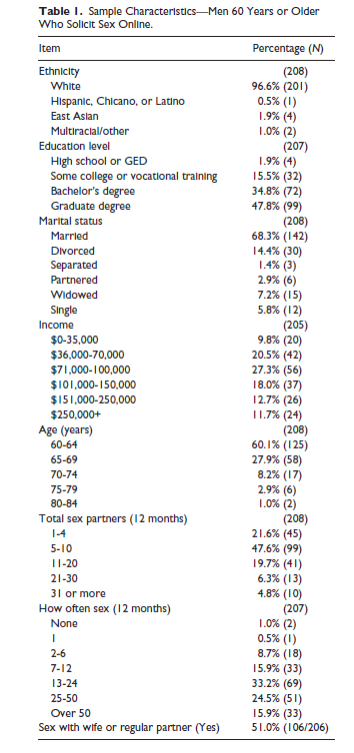Over half of men over 60 admit not using protection when paying for sex

Men over 60 who pay for sex are less likely to use protection as they get older. A study found that as they age, men are more likely to pay for sex, as well as engage in unprotected intercourse multiple times.
The research aimed to assess the condom use and sexual risk involved with over 60-year-old men, as well as for sex workers. It was found that 60% of the men admitted to not always using protection with prostitutes.
"Medical and mental health clinicians should not assume that old age is a barrier to paying for sex," write the researchers. "Particularly among the generations that began engaging in sexual activity prior to the epidemic emergence of the HIV virus."

The researchers wrote in the American Journal of Men's Health, that of the 208 men surveyed – all over-60s claiming to have paid for sex – more than 30% had been diagnosed with a sexually-transmitted disease on at least one occasion. The age of the men, which went up to 84 years old, also showed a link suggesting the older the person, the more likely they were to not use protection.
More than 68% of the participants were married at the time of the investigation, with 75% of them also engaging in sexual activity with their wife.
"There is a nearly universal perception that older men do not pay for, or even engage sexually with regular frequency," said Christine Milrod, lead author of the study. "This view may contribute to a false sense of security for both clients and sex workers during their encounters, and may lead to less protective strategies than with younger purchasers of sex."
The survey also showed that almost a third of the men had a favourite partner, who they repeatedly kept coming back to for their services. Milrod believes the older age of the men leads sex workers to become slightly more care-free with regard to protection.
Milrod said: "The exchange of emotional intimacy during the so-called 'Girlfriend Experience' as well as the possibility of being viewed as an elderly low-risk client who engages with only one or a very limited number of providers may contribute to a relaxation of boundaries and a false sense of security in avoiding STIs."
The authors suggest that doctors ask their male patients about their sexual activity, and discuss protective measures for reducing the risk of sexually transmitted diseases.
© Copyright IBTimes 2025. All rights reserved.






















